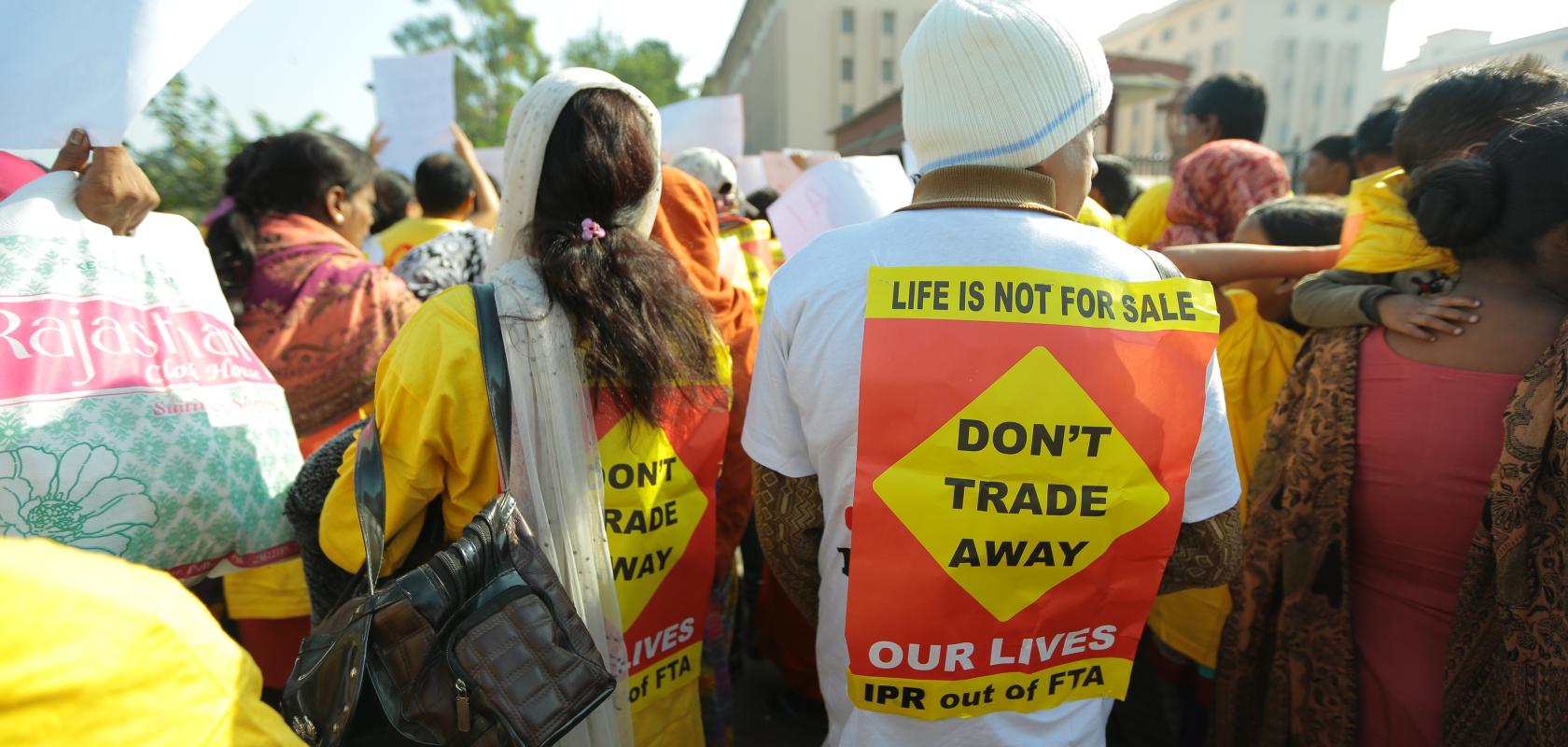New patent rules in India-UK trade agreement will prioritise pharmaceutical profit over public health
AFTINET | 13 February 2024
New patent rules in India-UK trade agreement will prioritise pharmaceutical profit over public health
The UK is fighting hard to include additional protections for patents on medicines in a nearly completed trade agreement with India, “tighten[ing] the screws” on India’s generic medicines production which is a crucial source of cheap, accessible medicines across the globe. Public health advocates are calling for the UK to walk back on these provisions, which they say will come at enormous cost to the UK National Health Service and public health around the world.
The Trade-Related Aspects of Intellectual Property Rights (TRIPS) Agreement, which India is part of, gives pharmaceutical companies patents for up to 20-years on new medicines they develop. This model is meant to recoup pharmaceutical company costs spent on medicine development. But now the UK is pushing for “TRIPS-Plus” provisions in the UK-India agreement which would increase pharmaceutical companies’ monopolies even further, leading to criticism of the influence of pharmaceutical lobbyists on negotiations.
The “TRIPS-Plus” provisions would, among other things, allow pharmaceutical companies to increase patents beyond the standard 20-years, delay generic companies accessing data on producing medicines after the patents expire and allow them to indefinitely make minor changes to the form of the same drug, known as “evergreening” patents.
These changes threaten India’s role as the world’s largest producer and exporter of generic drugs. India is the largest supplier of medicines to Africa, and without generic medicines, African countries and others could not be able to afford vital HIV/AIDs, TB and other public health medicines. But it has implications for the UK too, as 25% of the UK’s NHS medicines are supplied by India, and the insistence of the UK on including “TRIPS-Plus” provisions will mean higher costs for medicines in the UK.
This is also significant for global public health norms, India has consistently opposed pharmaceutical company attempts to entrench patent protection above and beyond the TRIPS Agreement. For example, in a landmark case in 2013, India denied pharmaceutical giant Novartis a new patent for its leukaemia drug Glivec, finding that the company’s minor changes to the drug did not warrant an additional patent. India’s willingness to stand up to a powerful, multinational cooperation and outright deny “evergreening” was considered to be a trailblazing and bold decision to protect public health.
The “TRIPS-PLUS” provisions in the India-UK Agreement are a dangerous attempt to increase the power of pharmaceutical companies by placing profits before public health.






